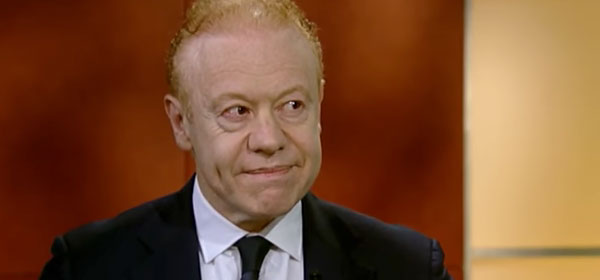Australia’s richest man and woman were part of a select group of billionaires, millionaires and money managers who have hatched a scheme to access your super.
The Superfunds Roundtable meeting was held at the luxury home of billionaire Anthony Pratt – AKA ‘The Cardboard King’ – to push a proposal for super funds to lend money directly to Australian businesses.
This plan would effectively bypass banks and give Aussie businesses access to the $2.4 trillion pension pot.
Joining Mr Pratt were billionaires Gina Rinehart and Lindsay Fox, Bega Cheese boss Barry Irvin and the father of Australian superannuation, Paul Keating.
Some Australian businesses are finding it difficult to access capital, so it makes sense that they would look for low-hanging fruit – and the hundreds of billions of dollars tied up in super seems as good an apple as any to target.
While the idea that Australian businesses could borrow money from superannuation instead going offshore for debt financing seems appealing, there may be setbacks, some that affect older Australians.
Companies can issue corporate bonds for financing, which super funds can already buy. However, Australia’s corporate bond market is under-developed and would need to be deeper and more liquid to provide diversification benefits to issuers and investors.
Then there’s the risk associated with lending to business. Banks that lend money to entrepreneurs will often ask for the house as collateral, but should that business fail, it’s more than a business owner’s house at risk – it’s the homes, livelihoods and retirements of many Australians.
Also, super funds don’t have the resources to micro-manage money so, unless there’s sufficient reward for doing so, the cost of setting up that aspect could come at the expense of super fund holders.
And, as the money in superannuation is not ‘owned’ by the funds or financial institutions, once a fund holder hits retirement, the money in the account can be withdrawn at any time. It doesn’t happen too often, but if a financial crisis were to hit, you can bet they’ll take it out in a heartbeat.
Should this plan proceed, it may lead to legislation that would prevent members from withdrawing at will, effectively blocking the freedom to access their own money. Super fund holders may also be forced to take out annuities which, instead of allowing them the freedom to use their money as they see fit, would pay them a measured, fortnightly income.
The upside to the proposal is that Australian businesses could more easily access capital that would keep their costs down, making it easier for them to flourish and provide a knock-on effect for the economy. But who would profit from the lower overheads? Business owners or the people who provide the money for them to make more?
It may also help super funds diversify their investments, which would benefit members moving from accumulation to pension phase. Most funds are geared towards growth, but it could be helpful to have diversification and have a greater choice of fixed-income investments. As the population ages, retirees typically switch from accumulating assets to selling them, which leads to increased demand for fixed-income assets.
Mr Keating believes this is where our ageing population would benefit.
“The super scheme that I set up was focused on accumulation. Now that Australians are living longer and moving into retirement, we need superannuation phase two. That means funding retirement, guaranteed income. It means tapping into long-term income streams,” he said.
In fact, Mr Keating seems to be a fan of the idea.
“We need another choice in our financial system. I don’t see any fundamental reasons, other than institutional stodginess on the part of the super funds and stubbornness on the part the banks, to putting this together and getting something done,” he said.
Read more at The Australian Financial Review
Do you think this is a good idea? Would you trust super funds to lend your money to the right types of business? How do you feel about losing the freedom to manage your money as you see fit?
Related articles:
How your superannuation is taxed
Boomers biggest retirement fear
Super fund of the year announced

